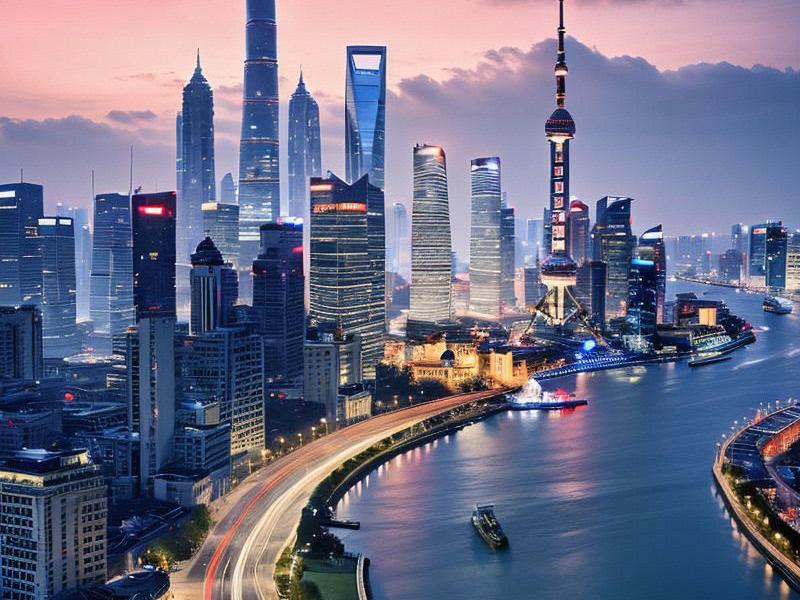This article delves into the multifaceted aspects of Shanghai, exploring its role as a leading city in China and the world. It examines the city's rapid urban development, its vibrant cultural scene, and its position as a hub for innovation and global influence.

Shanghai, the largest city in China, is not just a metropolis but a symbol of the country's modernization and global aspirations. Over the past few decades, Shanghai has transformed from a traditional port city into a dynamic hub of innovation, culture, and economic power. Its skyline, dotted with iconic skyscrapers like the Oriental Pearl Tower and the Shanghai Tower, stands as a testament to its rapid urban development.
The city's strategic location at the mouth of the Yangtze River has historically made it a key point for trade and commerce. Today, Shanghai continues to be a major financial center, with the Shanghai Stock Exchange being one of the largest in the world. The city's Pudong district, once a rural area, has been transformed into a modern financial district, home to the iconic Lujiazui skyline.
Shanghai's economic growth is not limited to finance. The city is also a leader in technology and innovation. It has established itself as a global hub for high-tech industries, attracting multinational corporations and startups alike. The Zhangjiang Hi-Tech Park, often referred to as "China's Silicon Valley," is a prime example of Shanghai's commitment to fostering innovation. This park houses numerous research institutions, incubators, and companies specializing in fields such as biotechnology, information technology, and new materials.
The city's cultural scene is equally vibrant. Shanghai is known for its blend of traditional Chinese culture and Western influences, which is reflected in its architecture, cuisine, and arts. The Bund, a historic waterfront area, showcases a mix of colonial-era buildings and modern skyscrapers, offering a glimpse into the city's rich history. The French Concession, another popular area, is known for its charming streets, boutique shops, and cafes.
新夜上海论坛
Shanghai's art scene is thriving, with numerous galleries, theaters, and cultural institutions. The Shanghai Museum, one of the oldest and most prestigious museums in China, houses an impressive collection of Chinese art, including ancient ceramics, calligraphy, and paintings. The city also hosts several international art festivals, such as the Shanghai International Film Festival and the Shanghai Biennale, which attract artists and audiences from around the world.
The city's culinary scene is another highlight. Shanghai cuisine, known for its sweet and savory flavors, is a must-try for food lovers. Dishes like Xiaolongbao (soup dumplings) and Shengjianbao (pan-fried dumplings) are iconic and can be found in many restaurants throughout the city. In addition to traditional Chinese cuisine, Shanghai also offers a wide range of international dishes, thanks to its diverse population and global influence.
Shanghai's rapid urban development has not been without challenges. The city has faced issues such as traffic congestion, air pollution, and housing shortages. However, the local government has implemented various measures to address these problems. Initiatives like the expansion of public transportation, the promotion of green energy, and the construction of affordable housing have helped improve the quality of life for residents.
上海夜网论坛
One of the most notable projects aimed at sustainable urban development is the Maglev train, which connects Shanghai Pudong International Airport to the city center. This high-speed train is not only a convenient mode of transportation but also an environmentally friendly alternative to traditional trains. Additionally, the city has been investing in green spaces and urban forests to enhance the living environment and combat pollution.
Shanghai's global influence extends beyond its economic and cultural achievements. The city has played a significant role in China's foreign relations and international cooperation. As a member of the World Expo's host city legacy, Shanghai successfully hosted the 2010 World Expo, attracting millions of visitors from around the world. The event showcased China's progress and highlighted Shanghai's capabilities as a global city.
The city's international presence is further strengthened by its role as a major port. The Port of Shanghai is the busiest container port in the world, handling a significant portion of global trade. This strategic advantage has made Shanghai a key player in international commerce and logistics.
爱上海同城对对碰交友论坛
Education is another area where Shanghai excels. The city is home to some of the best universities in China, including Fudan University and Tongji University. These institutions attract students and researchers from around the world, contributing to the city's intellectual and cultural vibrancy.
Shanghai's future looks promising as it continues to evolve and adapt to the changing global landscape. The city is committed to sustainable development, technological innovation, and cultural exchange. Initiatives like the Shanghai Free-Trade Zone aim to further enhance the city's position as a global hub for trade and investment.
In conclusion, Shanghai is a city that embodies the spirit of modern China. Its rapid urban development, vibrant cultural scene, and position as a hub for innovation and global influence make it a fascinating subject of study. As Shanghai continues to grow and thrive, it will undoubtedly play an increasingly important role on the world stage.
The city's ability to balance tradition and modernity, economic growth and environmental sustainability, and local identity and global integration is a model for other cities around the world. Shanghai's story is not just about its achievements but also about its aspirations and the opportunities it presents for the future.